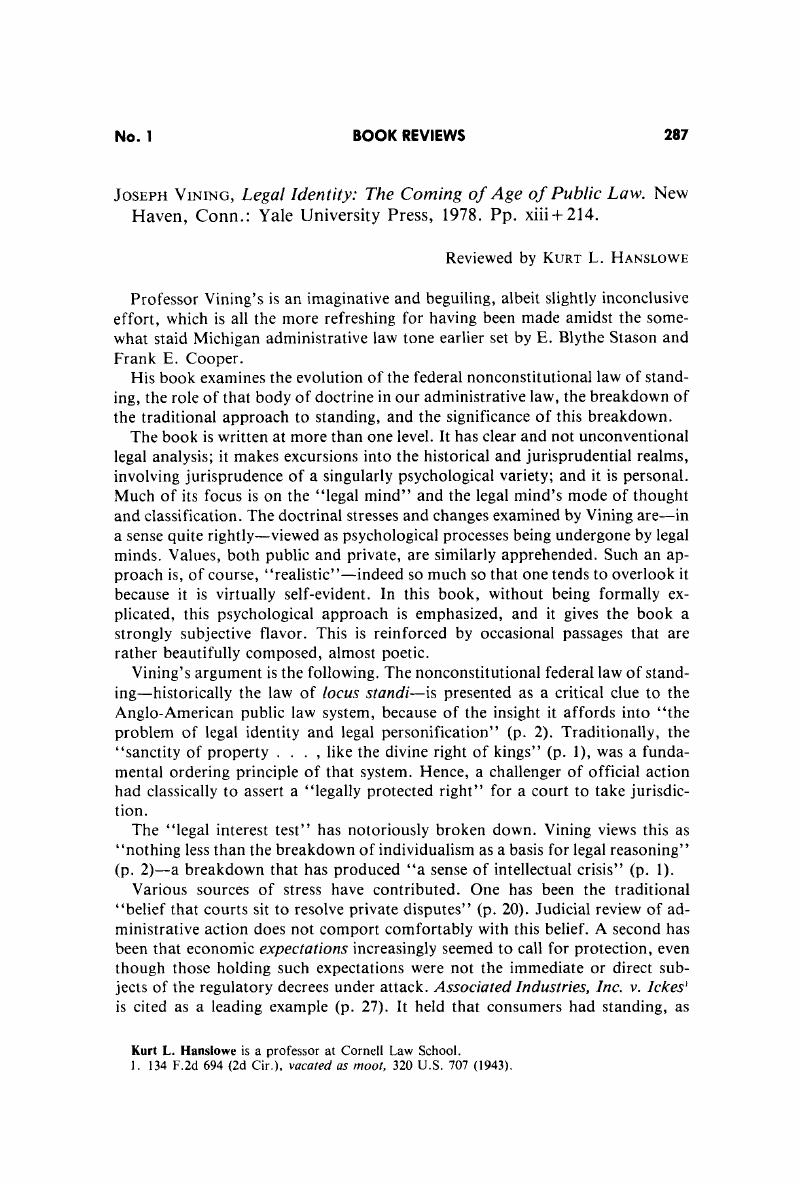No CrossRef data available.
Published online by Cambridge University Press: 20 November 2018

1 134 F.2d 694 (2d Cir.), vacated as moot, 320 U.S. 707 (1943).Google Scholar
2 See Sierra Club v. Morton, 405 U.S. 727, 760 n.2 (1972) (Blackmun, J., dissenting).Google Scholar
3 390 U.S. 1 (1968).Google Scholar
4 Association of Data Processing Serv. Org., Inc. v. Camp, 397 U.S. 150 (1970).Google Scholar
5 405 U.S. 251 (1972). In this case the state of Hawaii sought damages for injury to its economy attributable to a Sherman Act conspiracy. The Court denied standing for this purpose, holding that such general adverse economic effects did not amount to an injury to the state in its “property” within the meaning of the pertinent statute.Google Scholar
6 It is not entirely clear, however, whether the Data Processing decision has conclusively swept the field concerning standing. The Supreme Court has recently issued a number of significant decisions on constitutional standing concerning the requirement of a causal nexus. See, e.g., Duke Power Co. v. North Carolina Environmental Group, 438 U.S. 59 (1978); Simon v. Eastern Ky. Welfare Rights Org., 426 U.S. 26 (1976); Schlesinger v. Reservists Comm. to Stop the War, 418 U.S. 208 (1974); United States v. Richardson, 418 U.S. 166 (1974).Google Scholar
7 Office of Communication of the United Church of Christ v. FCC, 359 F.2d 994 (D.C. Cir. 1966) (television viewers have standing to participate in license renewal proceedings).Google Scholar
8 392 U.S. 83 (1968) (taxpayers held to have standing to challenge disbursements under specific constitutional limitations such as the establishment clause).Google Scholar
9 United States v. Students Challenging Regulatory Agency Procedures (SCRAP), 412 U.S. 669 (1973) (users of parks have standing to challenge ice freight rates that failed to favor recycled goods).Google Scholar